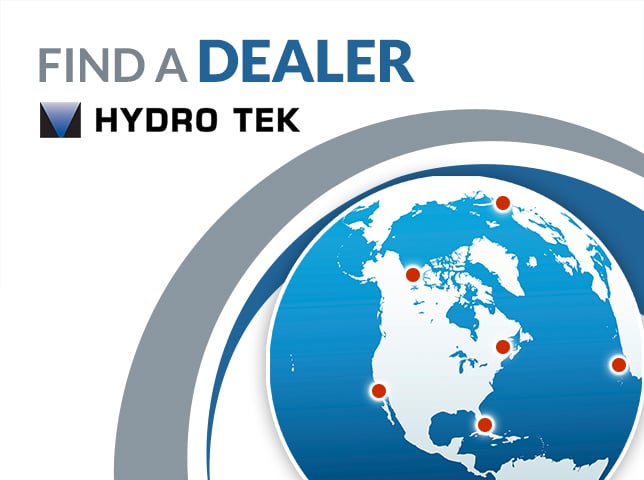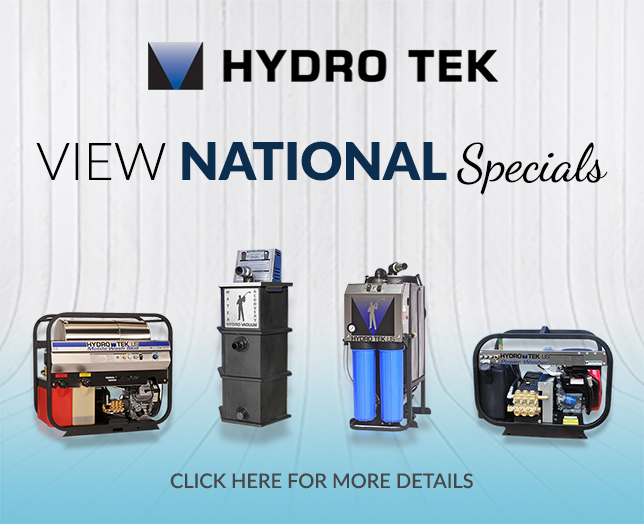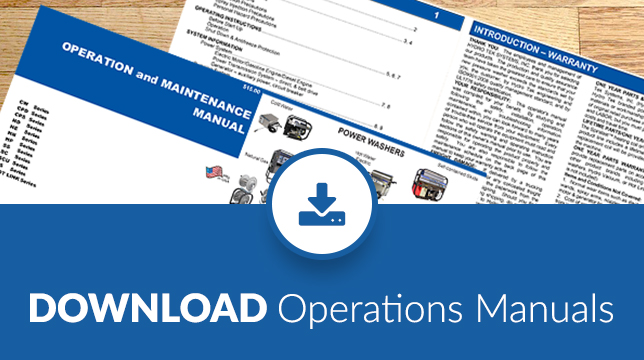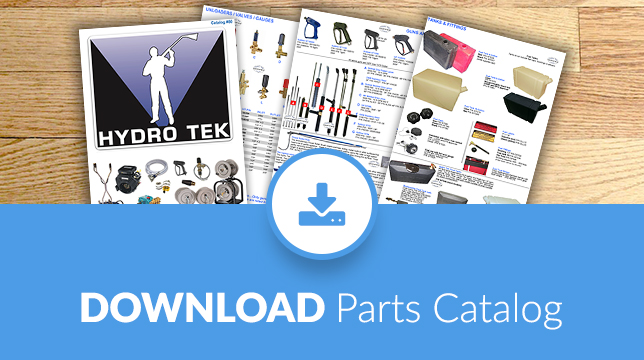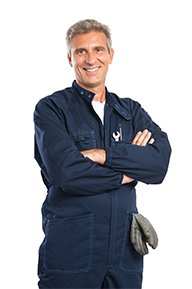This article was written by the President of Hydro Tek for the Cleaner Times - November 2002 Issue.
To be successful in sales, customer expectations need to be met or exceeded. This requires the salesperson of a pressure washer to understand the basics of application engineering. In other words, the type of pressure washer must be matched to the job, application, and life expectancy. While many pressure washers may look alike, there may be a big difference in design integrity, system performance, and product life.
By looking at the generic design and components of a pressure washer, we can estimate the life expectancy in number of hours and then give a customer the machine that will last as long as that individual expects. One of the problems in communicating this to a customer is that life hours are not always understood. Hours can be better understood if related to miles driven on a car measured by the odometer. If you consider that the load on an engine of a pressure washer is equivalent to running a vehicle at 50+ miles per hour, you can then multiply the number of hours on the pressure washer by 50. Three thousand hours on a pressure washer is then equivalent to about 150,000 miles on a car. If a customer expects the pressure washer to last three years and runs it on average 40 hours per week, 6,000 hours or over 300,000 miles are going to be racked up on it. This life expectancy is unlikely on a car without a major overhaul, but sometimes this is the expectation demanded of a pressure washer.
The type of design of the pressure washer and the components selected by the manufacturer will determine how long the pressure washer will last. Much of the equipment designed for the homeowner is built to only last about 100 hours. Since a homeowner may only use the washer one hour per week, the washer will probably last at least two years. If this same washer is sold to an industrial user that uses it every day, it may only last three weeks. This type of washer usually retails for under $300 and is typically a high rpm direct drive with an integrated electric motor, aluminum pump head, and plastic valves. If it is gas-engine driven, it will typically have a vertical-shaft, lawn mower engine and would not have a cast-iron cylinder. This equipment is fine for the homeowner but not a good recommendation for heavy use.
The Markets
The equipment designed for the "tradesman" market will satisfy the need of the occasional user that runs the pressure washer five hours per week and expects it to last three years or 1,000 hours. The design will typically include a direct-drive, high-rpm, low-cost aluminum head pump with integrated unloader that may be axial or crankcase propelled. Gas engine versions may have a low-end, horizontal-shaft, cast-iron bore engine.
The "commercial" customer that uses the washer 10 to 15 hours per week will require a 2,000-hour machine. The pump could be high rpm direct drive but with a brass head, stainless steel valves, and a quality unloader that has been tested to endure at least 50,000 cycles. Gas engines should be labeled industrial/commercial and have overhead valve and cast-iron bore.
The "industrial" customer probably uses the pressure washer 20 to 40 hours per week and requires at least a 3000-hour machine. The pump life is extended with a lower speed design (1,750RPM or less) and unloader and burner controls tested to over 88,000 cycles. There are only a few high-speed pumps that can last up to 3,000 hours. The electric motor should be high efficiency/low amp draw and drive the pump through gear reduction or belts if it is high speed. Gas engines should be industrial/commercial and may power the burner system through a high-amp, 12-volt charging system and power the pump with belts, which transfer less engine heat and vibration to the pump.
The "professional" contract cleaner and other heavy users can require a machine that runs more than 40 hours per week or over 2,000 hours per year. Only the premium quality pumps that are used in applications like coin-op car washes are designed for this kind of life. Belt drive is a must for extended life and serviceability. Heavy-duty designs require all components to be top quality. Heat exchanger coils should be a minimum schedule 80 pipe. The electric motor should be not only high efficiency but should also have reserve power or a service factor of 115%. If gasoline-powered, twin-cylinder pressure lubricated engines are preferred, they should be rated to produce 50% more power than the load. Water-cooled gas and diesel engines also provide extended life. Diesel burner systems that are 12 volt have recently become more reliable, but the proven 110-volt systems are a better bet especially when heating over 4 gpm of water and 350,000 BTU's. Life expectancies of over two years in harsh environments require quality powder-coated finish or extensive use of less corrosive materials such as stainless steel and polyethylene.
Customers may not always fit into the categories that we have placed them in. A homeowner may wish to purchase a machine that lasts longer than two years and may not mind spending a bit more up front to get a commercial or even industrial machine that will be less expensive in the long run. A tradesman or an industrial/commercial user may anticipate using the pressure washer many additional hours per week or may not want to replace the pressure washer every few years. A washer designed for over 40 hours of use per week would double the life span if it were only used 20 hours per week.
Unfortunately, some customers have budget constraints that make it difficult to purchase the machine that might cost more up front but provide an overall lower cost of ownership. It is up to us as professionals, who have the experience and knowledge to ask the right questions, to educate consumers and provide them with realistic life expectations so they don't buy the wrong pressure washer. It is also important to remind customers that purchasing CETA Performance Certified products will ensure that they are getting the pressure and flow output they paid for and enough reserve horsepower that won't overload the motor and shorten the life. Customers will come back and buy again from distributors they can trust to match the right pressure washer to their needs and expectations.
John Koen is president of Hydro Tek Systems, Inc. and served as CETA President for 2001-2002.




